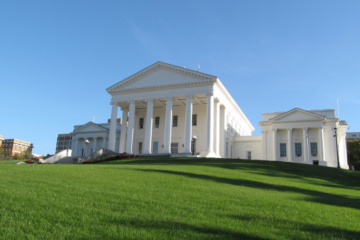Rep. Dan Crenshaw is calling on the FDA to take swift action on psychedelics research to help military veterans battling PTSD. With groundbreaking studies showing promising results, Crenshaw argues that veterans shouldn’t have to seek treatment overseas.
The call for action comes after years of mounting interest and support for the potential benefits of substances like MDMA and psilocybin. These substances, which the FDA has already recognised as breakthrough therapies, are at the heart of efforts to improve mental health treatments for those who have served in the military.
The Push for Faster Action on Psychedelic Research
Rep. Dan Crenshaw has become a strong advocate for the use of psychedelics to treat post-traumatic stress disorder (PTSD) in military veterans. On Wednesday, the Republican congressman from Texas renewed his call for the Food and Drug Administration (FDA) to finalize its clinical trial guidelines for studying psychedelics. His push comes as veterans face long waits and limitations on accessing potential treatments for PTSD—treatments that could dramatically improve their quality of life.
Crenshaw highlighted the significant progress already made in the research of psychedelic substances, such as MDMA and psilocybin, which have shown substantial promise in alleviating PTSD symptoms. However, he is pushing for faster action from the FDA to bring these therapies to the forefront of medical treatment in the U.S.
“There’s astonishing research showing remission of PTSD with psychedelics therapy,” Crenshaw stated. “Veterans shouldn’t be forced to go abroad to access the treatment they need.”
The congressman’s plea underscores the urgency of moving forward with clinical trials that could make psychedelics more widely available for veterans in the U.S. His remarks follow a year of significant legislative movement on the topic.

Breakthroughs and Legislation: A Year of Progress
Last year, the FDA took a step forward by releasing its first-ever draft guidance on the study of psychedelics. The document followed a bipartisan push in Congress, led by Crenshaw and others, to spur the FDA to begin formulating concrete policies for psychedelic research. This draft guidance laid the groundwork for future studies that could pave the way for broader access to these substances as therapeutic tools.
In addition to the draft guidance, Crenshaw’s own legislative efforts have been pivotal. His work helped secure a law mandating that the Department of Defense (DOD) conduct clinical trials on psychedelics for active-duty military personnel. The law was signed by President Biden late last year, marking a significant step forward for psychedelics research in the military.
Crenshaw’s involvement has placed him at the heart of the movement to expand research into psychedelic therapies for veterans, and his continued advocacy for quick FDA action remains a central theme of his efforts.
Bipartisan Support and Growing Interest
The push for psychedelic research has gained traction across both political parties, with key lawmakers on both sides of the aisle voicing their support. This includes not just Crenshaw but also Reps. Mariannette Miller-Meeks (R-IA) and Ro Khanna (D-CA), who introduced the legislation to mandate the FDA’s action on psychedelics studies.
Their efforts are not just about advancing research but also about addressing the growing mental health crisis among veterans. In fact, the Department of Veterans Affairs (VA) recently announced it would fund a $1.5 million study into the efficacy of MDMA-assisted therapy for veterans suffering from PTSD and alcohol use disorder (AUD). This decision has been hailed by bipartisan members of Congress, who have long championed expanded federal support for psychedelic therapies.
The funding initiative marks another significant step in the effort to provide veterans with alternative, potentially life-saving treatments. “It’s time to expand access to treatments that could help save lives,” Rep. Jack Bergman (R-MI) remarked after the funding was confirmed.
Furthermore, this focus on psychedelics is not only limited to PTSD. The VA’s study will also explore the potential benefits of MDMA-assisted therapy in treating veterans who suffer from AUD, underscoring the breadth of these substances’ therapeutic potential.
The Growing Political Will for Psychedelic Research
Interest in psychedelic therapies has reached new heights in recent years, thanks to an increasing body of research and growing public acceptance. Many states and cities across the country are revisiting the legality of substances like MDMA and psilocybin, driven by the promise these substances hold for those suffering from mental health issues. These substances are now officially classified by the FDA as “breakthrough therapies,” which indicates their potential to offer significant benefits over existing treatments.
Despite these advances, the FDA continues to face criticism, particularly after it rejected an application for MDMA-assisted therapy earlier this year. Critics argue that the FDA’s cautious approach to authorising such therapies is slowing down progress. As part of the ongoing debate, Congress has been pushing for greater clarity and action from the FDA to allow more studies to get underway.
The resistance from the FDA has not deterred proponents of psychedelic therapies, however. Advocates continue to call for the removal of federal barriers to research, noting that studies in places like Oregon and Colorado are already showing positive results.
Legislative Momentum and Future Prospects
As the momentum for psychedelic research builds, additional legislative measures are being introduced to support these therapies. For example, the U.S. House of Representatives recently approved amendments to a large-scale spending bill that would allow VA doctors to recommend medical marijuana for veterans and support expanded research into psychedelics. This legislative action reflects the growing bipartisan consensus on the need for alternative therapies for veterans facing mental health challenges.
Moreover, in a sign that psychedelics are beginning to break through the mainstream, even the DEA has adjusted its stance on certain substances. Recently, the DEA increased its 2025 quota for the legal production of DMT, a powerful psychedelic substance, to support ongoing research efforts.
This shift in policy shows that psychedelic therapy is slowly becoming more accepted by federal agencies. As researchers continue to explore their potential, the door is opening for broader therapeutic applications in the future.



